'Rogue landlords' exploit vulnerable families in Govanhill
- Published
Several landlords have continued to work in the Govanhill area of Glasgow despite being officially struck off
Vulnerable families are being exploited by "rogue landlords" in the midst of the first minister's constituency, a BBC Scotland investigation has found.
They are living in substandard homes in the Govanhill area of Glasgow - but many are too afraid to speak out.
The investigation found a number of de-registered landlords continued to work in the area despite being officially struck off.
It also revealed how public money is being used to buy up slum housing.

What is wrong with housing in Govanhill?
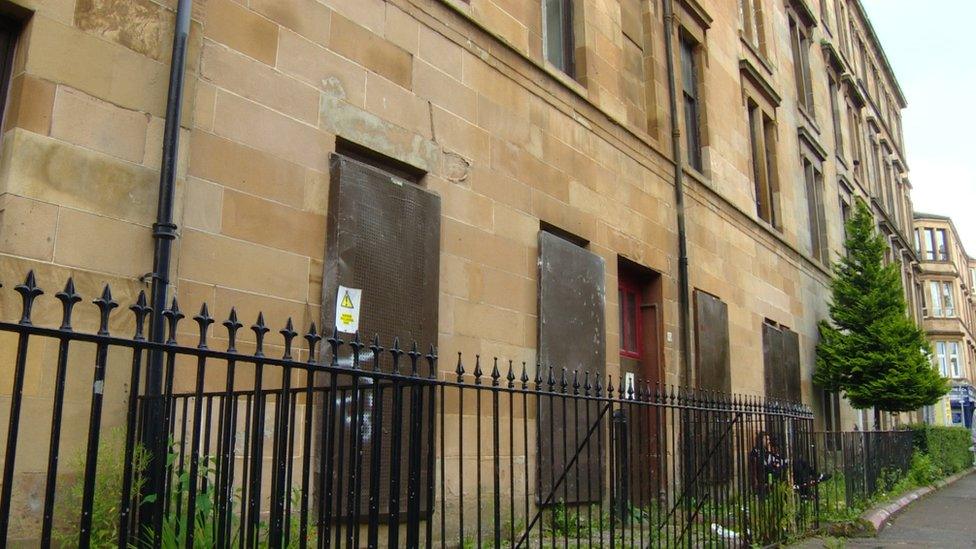
Some of the homes in the area are in a very poor condition and in the last year the council closed 11 properties of "below tolerable" standard.
"The worst cases are the ones with newborn babies in flats that don't have running water," said Rachel Moon, of Govanhill Law Centre.
The centre sees hundreds of new clients every year who are living in substandard homes or who have had their deposits stolen.
And she said the landlords are often at the root of the problem.
"The audacity of some of the landlords is totally remarkable," she said.
"We must have had 12 cases in five weeks of slum landlords moving into property that was being demolished.
'Derelict property'
"They were changing locks, making up fake tenancy agreements and putting signs in the window saying the property was for rent.
"People were phoning the number, paying the deposit and the first month's rent.
"But obviously this was not a legal tenancy so the clients were then losing their property."
Ch Insp Graham McInarlin, of Police Scotland, said they were investigating reports of landlords who have been struck off but remain in business.
He said: "They take over a derelict property, take several months of rent up front and in actual fact they don't own the flat in the first place."
He added that one landlord has 17 trading standards cases against him.

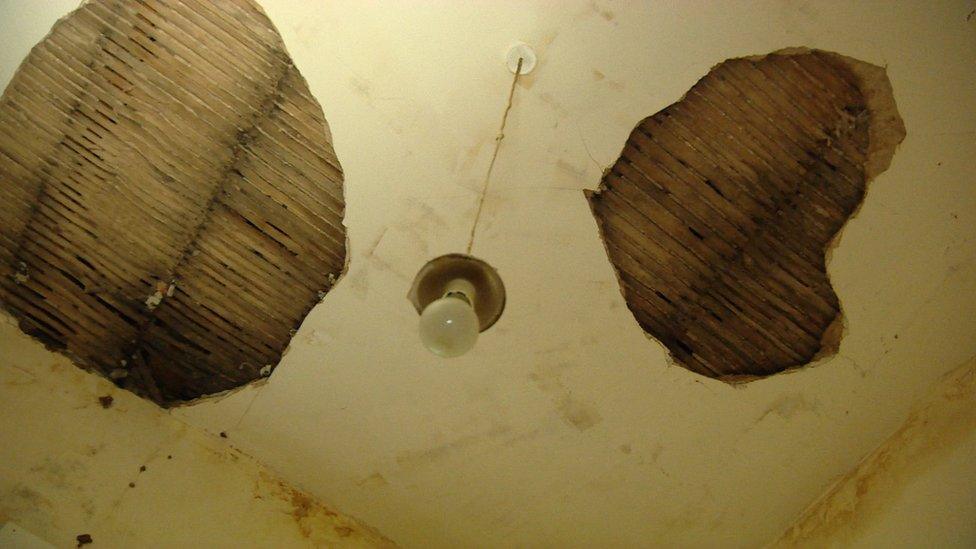

Who are the so-called rogue landlords?
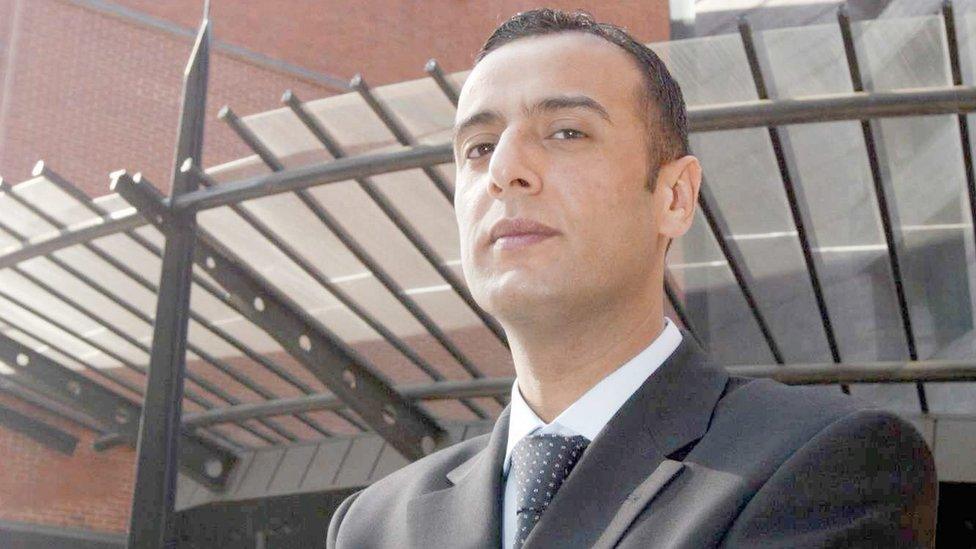
Shaban Rehman was de-registered as a landlord in May after taking £7,000 of deposits from tenants
Shaban Rehman, 44, was de-registered as a landlord in May after taking £7,000 of deposits from tenants. His Better Homes letting agency was dissolved earlier this year, but BBC Scotland has learned that the business in Govanhill has remained open. He has now being reported to prosecutors for alleged fraud, theft and for acting as a landlord while unregistered. Mr Rehman told BBC Scotland he denied the charges and was appealing against his de-registration. He said the office was open but it was not trading.
Mohammed Nawaz has been described as one of Scotland's most notorious landlords. Mr Nawaz, who owned a host of flats in Govanhill, was banned in 2012 from acting as a private landlord and letting agent. Local agencies say he has continued to practice through relatives and friends. He faces two trials in the next six months for charges including threats of violence, aggressive behaviour, approaching tenants outside of property and threatening to return to evict them, embezzlement, theft, fraud, forcing entry and changing locks. His son Naeem Nawaz told BBC Scotland his father denies all the charges and that they believe the cases will be dropped.
Johar Mirza, 36, is wanted by the FBI in connection with alleged fraud but he is also under investigation by Police Scotland for his practices as a landlord. He is currently serving a prison sentence for attacking a woman but he is still registered as a landlord. Officers say his properties are still being let to tenants and some fall below tolerable standards. Mirza, from Pollokshaws, claims he has been the victim of a miscarriage of justice and is fighting extradition. He was not available for comment.
Mohammed Adam Hussain was sequestrated on 8 August for outstanding debts to the council. He is also under investigation for breaching landlord registration rules in the area.
Mohammed Aslam was de-registered by Glasgow City Council in 2008 following an investigation which concluded he was "not a fit and proper person" to be a landlord. But Mr Aslam is the currently back on trial at Glasgow Sheriff Court and faces charges against him: that he acted as a landlord without the required registration with Glasgow City Council. Mr Aslam denies the charges.

What is being done to tackle the problem?
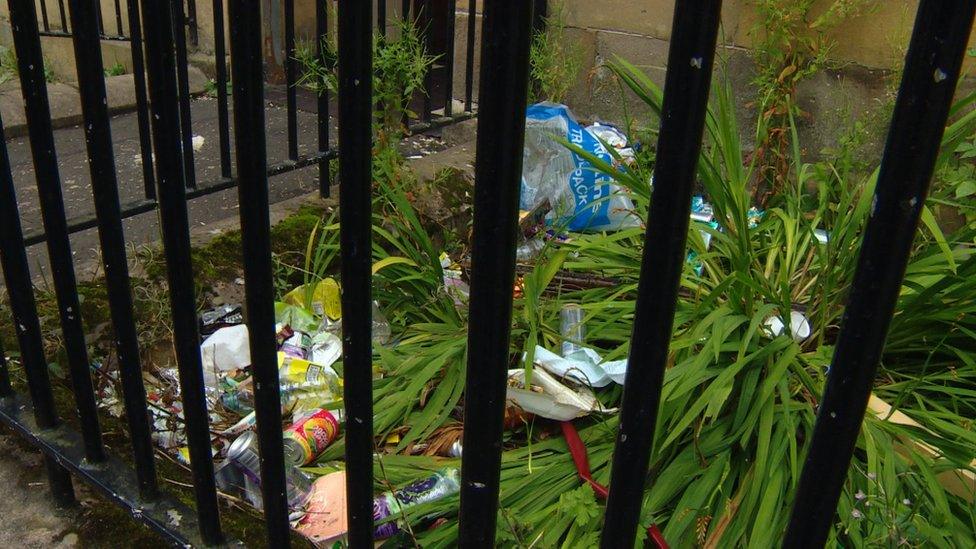
Since 2014, two landlords have been de-registered after being found that they were not fit-and-proper.
However Gordon Smith, of the Govanhill hub, said there was evidence some landlords are continuing to practice after losing their registration.
"It could be through a family member or friend but that is extremely difficult to prove," he said.
Over the past seven years, Glasgow City Council has spent £25m on "common repairs" to properties in the area - but considerable problems are still visible.
The challenges in Govanhill are so exceptional that the council has been given the power to purchase and improve properties in four tenement blocks in the area.
The £9.3m scheme funded by both the Scottish government and the council itself, is a two-year pilot and the first of its kind in Scotland.
The tenement blocks have also been designated an Enhanced Enforcement Area (EEA), meaning the council will have more powers to tackle rogue landlords and improve conditions.
It gives the local authority right of entry to rented properties where there have been complaints, as well as the ability to carry out disclosure checks on problem landlords.

Is the scheme working?
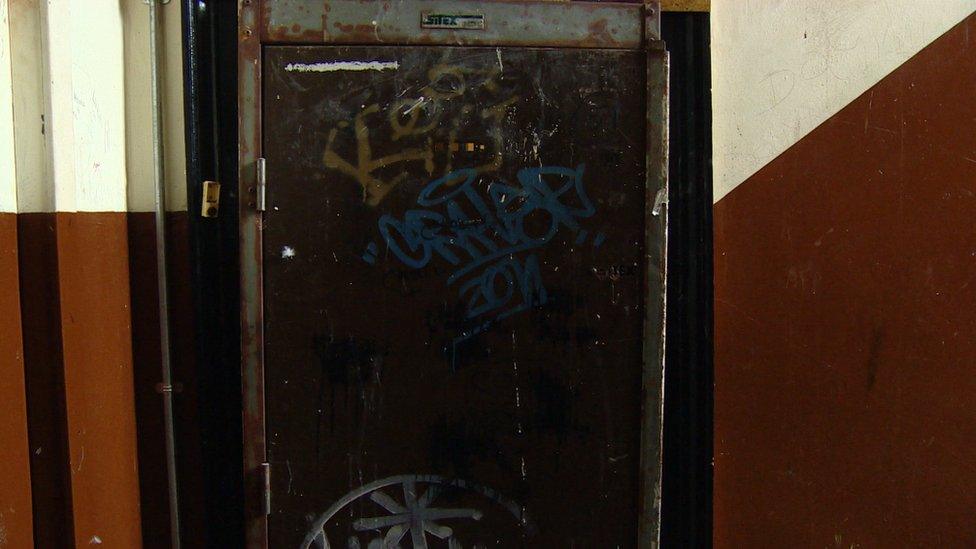
BBC Scotland has found that some 16 months into the two-year project, almost half of the 99 properties bought up with public money were owner-occupied.
The residents were keen to remain part of the regeneration project but many of the "rogue landlords" have refused to sell.
To date, no compulsory purchase orders (CPOs) have been used to force their hand.
The council admits that buying owner-occupied flats was not the original aim but it has become a valuable part of the pilot because they are also working to get majority ownership of closes in order to install factors.
They hope the two-year scheme will be extended to at least five years and say they have not ruled out CPOs.

What do local people think of the project?
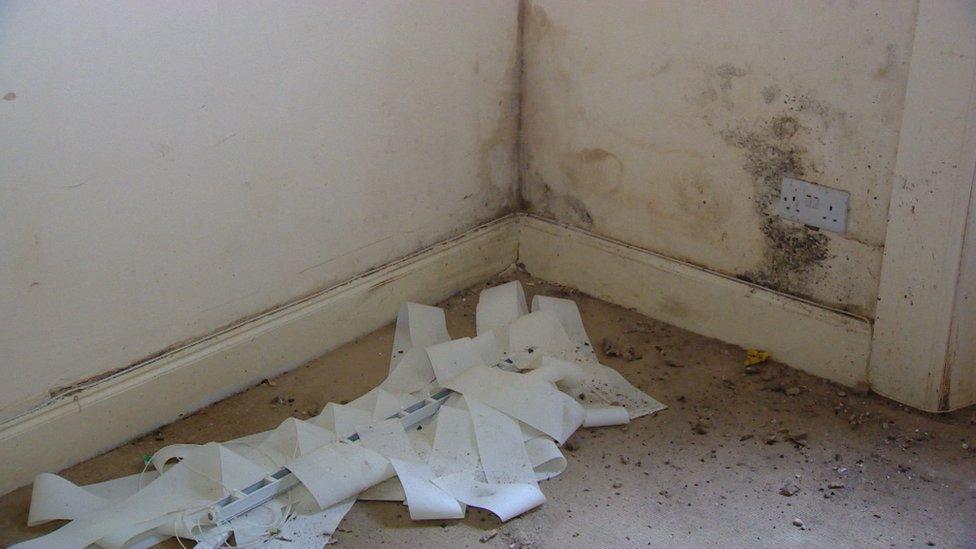
Jim Monaghan, head of the Govanhill Baths Community Trust, has criticised the "light touch" of the project.
He said: "The idea was to attack rogue landlords, the people that were bringing the area down if you like.
"Without CPOs to reach the targets they need they're just buying houses from people who want to move out.
"There's advantages of it coming back into public ownership but it certainly wasn't the plan.
"The EEA was designed to tackle the worst landlords and I don't believe that's happened at all."
Unregistered landlords
But Anne Lear, the director of Govanhill Housing Association, said it was working well.
"A majority of purchases have been from landlords," she said. "Some were selling due to inability to let, low rents achieved or the cost of improvements.
"We have also bought properties from other private owners. Some of these may have been unregistered landlords.
"It's our view that if the association did not acquire them they would have attracted more privately rented housing. About a third of owners selling have stayed on as tenants, wishing to remain in the neighbourhood.
"The project has achieved a lot within a short time, however addressing this issue in south west Govanhill is a long-term aim, not a problem with a quick-fix solution.
"This will require the council's use of appropriate legislative powers, including the use of CPOs."
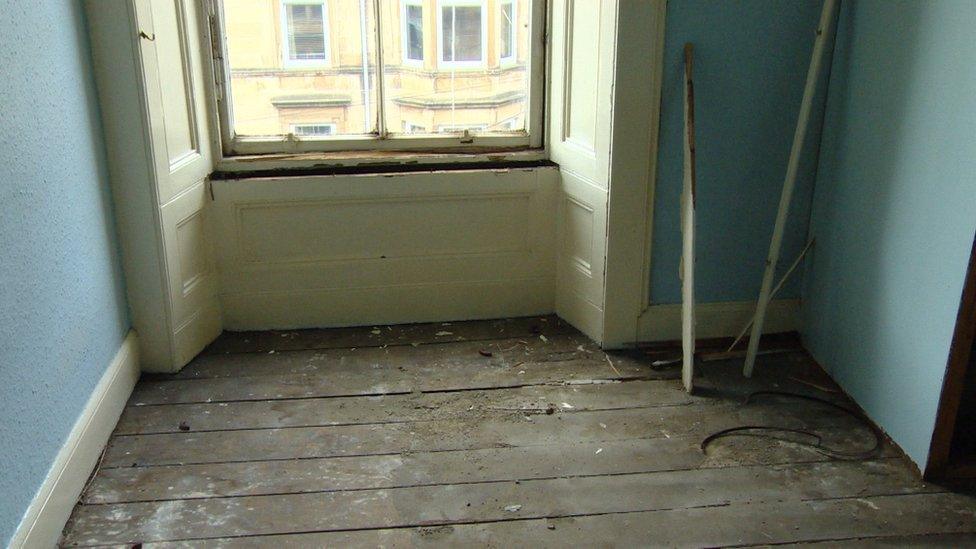
- Published21 September 2015
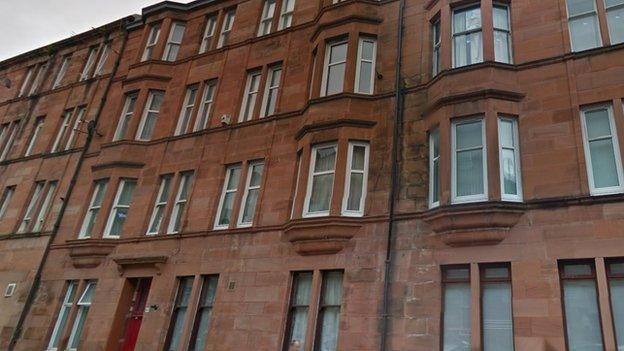
- Published6 February 2015
